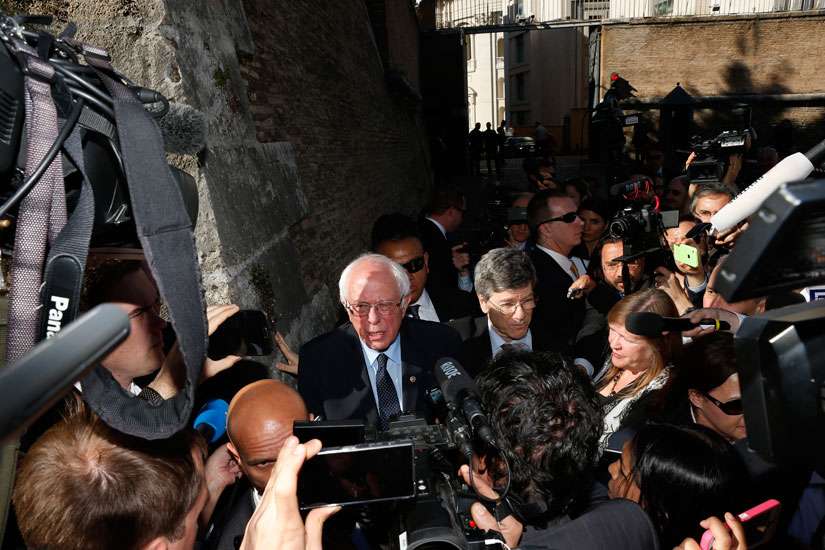When asked about the controversy surrounding the invitation during a presidential campaign cycle and whether that translated into the Vatican somehow supporting his bid, he told the Italian daily La Repubblica, "No, that's not it. The Vatican isn't involved in that. The conference isn't a political event."
Sanders was one of about 35 economists, academics, Church leaders and politicians invited to attend a conference April 15-16 dedicated to St. John Paul II's 1991 social encyclical Centesimus Annus. The meeting was jointly sponsored by the Pontifical Academy of Social Sciences and the Institute for Advanced Catholic Studies. Ecuadorian President Rafael Correa and Bolivian President Evo Morales were also invited to speak at the two-day conference.
Sanders told La Repubblica in an interview published April 15 that he was a huge fan of Pope Francis, "even if I have opinions different from his on certain issues." He said he believes the Pope is "a charismatic figure who is helping public opinion become aware of the inequalities in income and wealth that we are seeing in the world."
"The Pope wants to fix the social injustices in society and I am completely with him on that," he told the Italian paper.
Sanders' talk, titled "The Urgency of a Moral Economy: Reflections on the 25th Anniversary of Centesimus Annus," was to focus on a just distribution of the world's resources, inequality in health care and climate change, he said.
Daniel K. Finn, professor of economics and theology at St. John's University in Collegeville, Minnesota, said in his opening address that the conference was meant to ask where the Church needs to "go from here" as it promotes its teachings and actively engages in the world.
The academy's role includes listening to top specialists to gain insights that "can help both Church leaders and ordinary Catholics better understand what is happening around them," he said in the program's introduction, jointly written with Margaret Archer, a British sociologist and president of the academy.
Close observation and analysis as well as "a generous listening to the multiplicity of 'grassroots' groups and movements around the globe is critical for an adequate grasp of social reality today," the introduction said.

